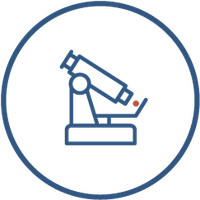Published: 30 August 2022
BioAscent’s Associate Director of In Silico Discovery and Data Analysis, Dr Angelo Pugliese is co-author of a research article that was recently published in RSC Medicinal Chemistry Journal. The article describes the development of an open-source, user-friendly, AI-assisted fragment generator.
When leading the computational chemistry and AI team at the Drug Discovery Unit at the Cancer Research UK Beatson Institute, Angelo and his team published an earlier paper, reporting an AI-assisted fragment generator trained by using 486,565 fragments to enable fragment library design, which is crucial for efficient hit identification. The article can be read here.
Now Angelo, in collaboration with Dr Alan Bilsland and Dr Justin Bower from Cancer Research Horizons, has ported the AI-assisted fragment-generator into KNIME, an open-source visual-programming platform. This makes the model more accessible for users with limited programming skills. To read this recently published research article, click here.
Reflecting on his contribution, Angelo comments:
“When Professor Anna Hirsch, Dr Daniel Erlanson, and Dr David Rees as Guest Editors for RSC Medicinal Chemistry invited me to contribute to a themed collection dedicated to the latest advances in fragment-based drug discovery, I was excited at the opportunity to publish the work on implementing our autoencoder on an open-source platform accessible to everybody and codeless for the most part.”
At BioAscent, our highly experienced computational chemists have the capabilities to support our customers at every stage of the drug discovery workflow, including fragment-based drug discovery leveraging our in-house fragment library and screening capabilities. To find out more about our computational chemistry capabilities, click here.




